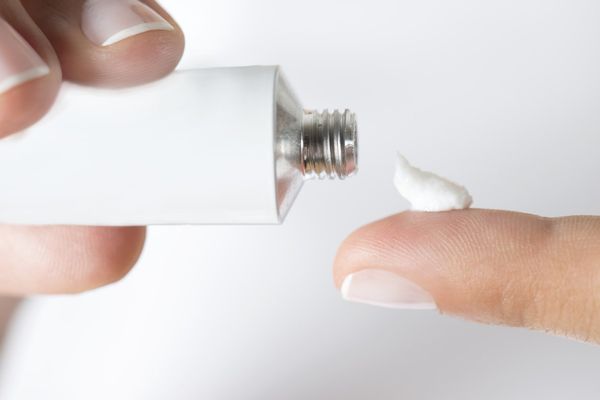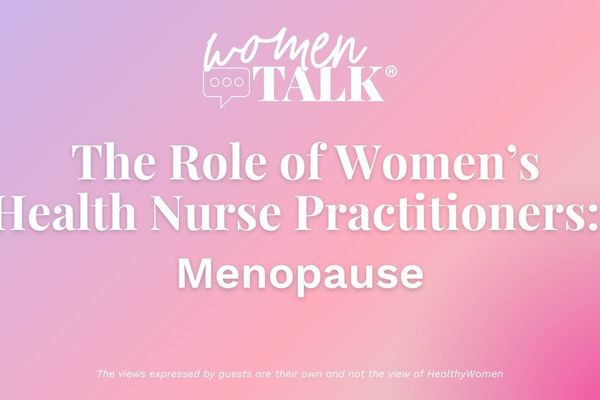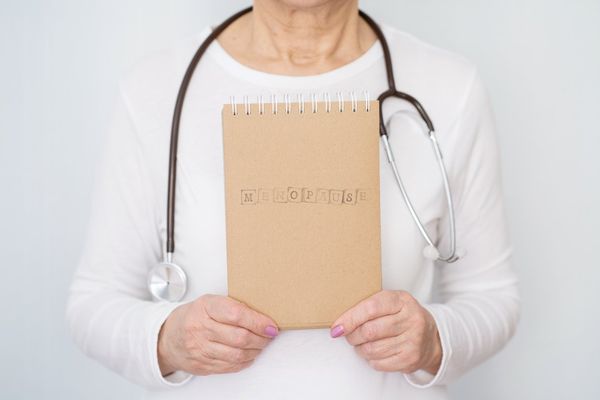It wasn’t all that long ago that we just didn’t talk about menopause, especially in certain communities. It was “that time of life” or “the change,” or women might say something about a particularly bad hot flash. That was about it. Thankfully, this attitude seems to be changing.
More women today are starting to compare notes and look for help. But even with more than 1 million women in the U.S. going through menopause each year, finding healthcare providers (HCPs) who are educated and trained in menopause care is still challenging. Women are often left with HCPs who don’t truly understand menopause and its many related issues.
Stephanie S. Faubion, M.D., director of the Mayo Clinic Women’s Health Center and medical director of the North American Menopause Society (NAMS), said this lack of understanding isn’t uncommon. “Most clinicians are no longer trained about menopause,” she said. “We did a study that was published in 2018. It found that internal medicine, family medicine and OB-GYN residents got maybe an hour of education or training in menopause.”
Physical examination: No questions about the reproductive system
Jennifer Fink, a registered nurse in rural Wisconsin, learned about this lack of training the hard way. When she was 49, she went for a general physical with a family physician she’d never seen before. “He did a complete review of the systems. He asked about my digestive system, my skin, my heart, my lungs, my musculoskeletal system,” she said. “But he didn’t ask one question about my reproductive system.”
A few days later, Fink realized she had a yeast infection. (It’s common for women in menopause or approaching menopause to develop yeast infections.) She went back to the doctor and mentioned that the only other times she’d had yeast infections were when she was pregnant, when her hormones were fluctuating. “I mentioned [fluctuating hormones] as a possibility, and he just brushed it off.”
Perimenopause versus menopause
Some people use the words menopause and perimenopause in place of each other, but they have different meanings.
Perimenopause is a time when your body gradually decreases how much estrogen and other hormones it produces. Ask any group of women about their perimenopause experience and you’ll probably get as many different answers as there are women. “The experience is highly variable,” Faubion said. “Some women have lighter, less frequent periods. Some have heavier, more frequent periods. Some women have normal periods and then one day stop.” Perimenopause can last anywhere from two to 10 years.
Once you haven’t had a menstrual period for one year, you’re in menopause. The average age of menopause is around 51, but it can start earlier or later. “It doesn’t have to be defined by a laboratory test,” Faubion explained. Induced menopause, caused by surgery to remove the ovaries or ovary damage from radiation or medications used to treat cancer, can affect even younger women.
The importance of menopause care
Menopause itself isn’t a medical problem. But it can cause uncomfortable symptoms. Menopause symptoms like hot flashes, mood swings, insomnia and vaginal dryness can affect your quality of life — but there are treatments that might help. An HCP with menopause training knows what to watch for and what to recommend.
HCPs who treat menopausal women also watch for health problems that could result from your body’s changes. For example, higher levels of estrogen before menopause help protect you from some types of heart disease, osteoporosis and other conditions. As your hormone levels drop, your risk for these illnesses could rise.
NAMS-Certified Menopause Practitioners
To address the need for menopause education, NAMS developed a menopause care certification program. Any licensed HCP can take the NAMS Certified Menopause Practitioner (NCMP) exam. If they pass, the certification shows that they can provide up-to-date care for people going through menopause.
Fink wishes she could have found someone with that training. Since she couldn’t get help from her HCP, she reached out to the midwife who helped her deliver her babies over 15 years ago. “She was very willing to answer my questions,” she said. “I was frustrated by my doctor’s lack of awareness or interest in even considering that my hormones were affecting not just my reproductive system, but my entire body. It didn’t seem to even be a consideration.”
Even a specialist in women’s health wasn’t much help to Fink. Her family history gives her a higher than average risk of ovarian and breast cancer. So she went to see a gynecological oncologist for a screening visit. While she was there, she mentioned the yeast infection and asked about a possible hormone connection. The HCP dismissed the idea that her infection could be caused by her hormones, saying that yeast infections are usually triggered by high levels of estrogen and perimenopause causes low estrogen levels.
But estrogen levels can swing widely during perimenopause, so they can still be high from time to time. And Fink said it only took her a few seconds to find that information on trusted online sites. “It was really disheartening to hear what that specialist in women’s health said. That was very discouraging.”
Finding the right HCP
It’s not always easy to find the right HCP for your needs, especially when it comes to menopause. But Faubion hopes that it will become easier as more HCPs get certified. The NAMS website has a locator provider page to help women find qualified HCPs in their area.
If there are no qualified HCPs in your area, virtual care might be an option. More HCPs are offering virtual care than ever before in the wake of the pandemic.
If your HCP tells you that you need to just live with the effects of menopause, no matter how badly symptoms may affect you, it’s time to look somewhere else for care, Faubion said. “It’s important to know that symptoms related to menopause are all over the map, from hot flashes and night sweats to trouble sleeping, mood changes — all of those things,” she said. “And one size does not fit all in terms of treatment.”
Finding someone who is qualified to care for your needs is an important part of your healthcare journey. “We deserve to be cared for by people who are knowledgeable about our bodies,” Fink said.
This resource was created with support from Astellas.
- A Conversation With Dr. Octavia Cannon About How Race Can Influence Menopause ›
- How To Talk to Your Healthcare Provider About Menopause ›
- Weight Gain: Dirty Menopausal Trick ›
- What Happens When You Hit Menopause Early ›
- Why Don't Women Want to Talk About Menopause? ›
- 3 Tips for Finding a Healthcare Provider Who Specializes in Menopause - HealthyWomen ›
- Test for Menopause - HealthyWomen ›
- The Role of Nurse Practitioners in Women’s Health: Menopause - HealthyWomen ›
- Get Good Menopuase Care with the Right Healthcare Provider - HealthyWomen ›







